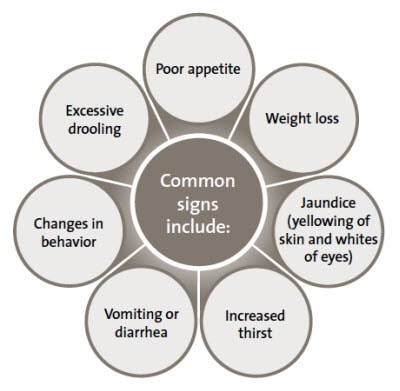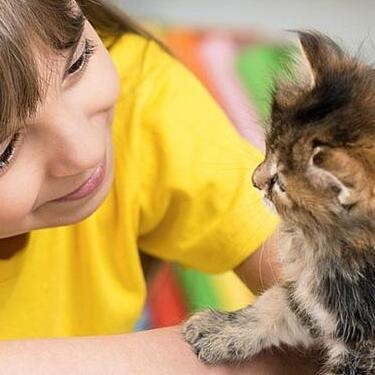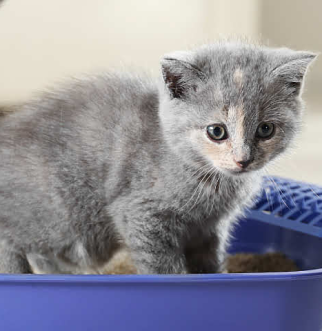
-
Find the right food for your pet
Take this quiz to see which food may be the best for your furry friend.
Find the right food for your pet
Take this quiz to see which food may be the best for your furry friend.
Featured products
 Adult 7+ Perfect Digestion Chicken, Whole Oats & Brown Rice Recipe Dog Food
Adult 7+ Perfect Digestion Chicken, Whole Oats & Brown Rice Recipe Dog FoodScience Diet's breakthrough nutrition supports ultimate digestive well-being & healthy microbiome for dogs age 7+
Shop Now Small & Mini Savory Stew with Chicken & Vegetables Dog Food
Small & Mini Savory Stew with Chicken & Vegetables Dog FoodA delicious complement to the nutrition of Science Diet Small & Mini 7+ dog food
Shop Now Adult Healthy Cuisine Roasted Chicken, Carrots & Spinach Stew Dog Food
Adult Healthy Cuisine Roasted Chicken, Carrots & Spinach Stew Dog FoodDelicious roasted chicken paired with tender vegetables in a succulent stew
Shop NowFeatured products
 Adult Savory Entrée Can Variety Pack Cat Food
Adult Savory Entrée Can Variety Pack Cat FoodPrecisely balanced nutrition with the delicious taste of savory minced chicken to help fuel the energy needs of cats during the prime of their life
Shop Now Adult 7+ Tender Tuna Dinner Cat Food
Adult 7+ Tender Tuna Dinner Cat FoodWith delicious chunks in a decadent gravy
Shop Now Adult 7+ Senior Vitality Chicken & Vegetable Stew Cat Food
Adult 7+ Senior Vitality Chicken & Vegetable Stew Cat FoodImproves Everyday Ability to Get Up & Go
Shop Now -
Dog
- Dog Tips & Articles
-
Health Category
- Weight
- Food & Environmental Sensitivities
- Urinary
- Digestive
- Joint
- Kidney
-
Life Stage
- Puppy Nutrition
- Adult Nutrition
- Senior Nutrition
Cat
- Cat Tips & Articles
-
Health Category
- Weight
- Skin & Food Sensitivities
- Urinary
- Digestive
- Kidney
-
Life Stage
- Kitten Nutrition
- Adult Nutrition
Featured articles
 Do Dogs and Cats have Belly Buttons?
Do Dogs and Cats have Belly Buttons?Learn whether cats & dogs have belly buttons like humans, what the function is, and if there are any health concerns associated with it.
Read More Does My Pet Hate Me?
Does My Pet Hate Me?Learn tips for bonding with your pet if you've ever thought, 'My dog doesn't like me, or 'Why do I have a standoffish cat?'
Read More Why Are Dogs and Cats So Cute?
Why Are Dogs and Cats So Cute?If waggy puppy dog tails and furry kitten yawns make you swoon, you're not alone. Why are cats so cute? And, dogs too! Let's find out!
Read More -


Related Image Content
What is liver disease?
The liver is an important organ with many functions, including the digestion and conversion of nutrients, the removal of toxic substances from the blood, and the storage of vitamins and minerals. Because the liver works to rid the body of so many different substances, it is susceptible to damage from many different sources. Liver disease results in inflammation, known as hepatitis. If untreated, this can lead to loss of function as healthy liver cells are replaced by scar tissue. Diseases elsewhere in the body can also affect the liver’s function.
Fortunately, liver disease can be effectively managed and progression limited. Many cats go on to live happily years after their diagnosis. Proper nutrition and continuous dialogue with your veterinarian are key to managing your cat’s liver disorder.
What causes liver disease?
Factors that increase your cat’s likelihood of developing liver disease include:
Age: Several diseases, including liver dysfunction, are common in geriatric cats.
Breed: Certain breeds, such as Siamese cats, are more likely to be born with or are prone to develop particular liver problems.
Obesity: Cats that are severely overweight may be more likely to develop liver disease.
Medications and chemicals: Medications containing acetaminophen can damage the liver in cats.
Does my cat have liver disease?
The signs of liver disease can be very similar to those of other conditions. If you notice any of the following signs in your cat, contact your veterinarian for a complete examination.
Symptoms to look out for include:
- Poor or loss of appetite
- Sudden weight loss
- Weight loss
- Jaundice (yellowing of gums, whites of the eyes or skin)
- Increased thirst
- Vomiting or diarrhea
- Changes in behavior
- Excessive drooling
- Lack of energy or depression
Other possible signs of liver disorders include dark-colored urine, pale gums, or a build- up of fluid in the abdomen that could be mistaken for sudden weight gain. Your veterinarian can administer other tests to diagnose liver disease.
IMPORTANT: The signs of liver disease are not very specific, making it difficult to recognize. If obese cats stop eating, there could be fatal complications. Cats that lose their appetite for two to three days may experience Feline Hepatic Lipidosis, a condition associated with a dangerous build-up of fat in the liver that impairs proper function. If your cat is not eating, consult your veterinarian immediately.


Tasty Tips
The importance of nutrition
If your cat is diagnosed, you may be wondering how to take care of your cat with liver disease. Treatment of any hepatic disease is aimed at resting the liver and minimizing those functions that have to do with metabolism of fats, proteins, carbohydrates and drugs. When your cat has liver disease, it’s even more important to feed the right cat food. Feed your cat easily digested carbohydrates, high-quality fats and limited amounts of sodium to control ongoing liver damage and improve liver function.
For accurate diagnosis and treatment options, always consult your veterinarian and ask them to recommend the best food for your cat’s liver health.
Ask Your Veterinarian About Liver Disease:
- Are there any foods I should avoid giving my cat because of her condition?
- Ask how human food may affect your cat’s health.
- Would you recommend a Hill’s® Prescription Diet® cat food for my cat’s liver health?
- Ask about special nutritional concerns for your cat
- How much / how often you should feed the recommended food to your cat
- Discuss which treats you can feed your cat with the recommended food
- How quickly should I expect to see signs of improvement in my cat’s condition?
- Can you provide me with written instructions or a booklet on liver disease for my cat?
- What is the best way (email/phone) to reach you or your hospital if I have questions?
- Ask if you need a follow-up appointment.
- Ask if a reminder email or notice will be sent.


One of our staff authors prepared this article for you
Related products
Related articles

How do you get a cat to lose weight? Learn all about cat foods for weight loss, including how to choose weight control cat food and exercise tips.

Discover how to train your cat, starting with very basic first steps that both reward good behavior and discourage the bad.

What is the best food for an overweight cat? Learn all about weight control food for cats, including what's in it and how it works.

Cats are naturally very clean and chances are your kitten will already have learned how to use the litter box from her mother before she comes to live with you.

Put your cat on a diet without them knowing
Our low calorie formula helps you control your cat's weight. It's packed with high-quality protein for building lean muscles, and made with purposeful ingredients for a flavorful, nutritious meal. Clinically proven antioxidants, Vitamin C+E, help promote a healthy immune system.
Put your cat on a diet without them knowing
Our low calorie formula helps you control your cat's weight. It's packed with high-quality protein for building lean muscles, and made with purposeful ingredients for a flavorful, nutritious meal. Clinically proven antioxidants, Vitamin C+E, help promote a healthy immune system.

